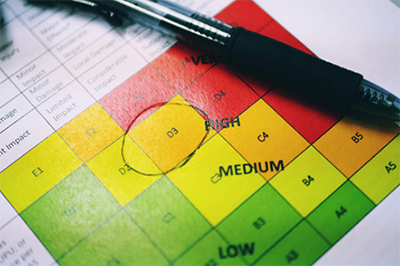
1. New Risk Score Far More Effective for Diabetes Diagnosis |

![]() Researchers at the University of Exeter and the Pacific Northwest Research Institute in Seattle have developed a new risk score which takes into account detailed genetic information known to increase the chances of type 1 diabetes (T1D). This could be used to help identify babies at highest risk of developing the condition in the future. The score may also be used at the time of diabetes diagnosis to help decide if someone has T1D or type 2 diabetes (T2D), which need very different treatments.
Researchers at the University of Exeter and the Pacific Northwest Research Institute in Seattle have developed a new risk score which takes into account detailed genetic information known to increase the chances of type 1 diabetes (T1D). This could be used to help identify babies at highest risk of developing the condition in the future. The score may also be used at the time of diabetes diagnosis to help decide if someone has T1D or type 2 diabetes (T2D), which need very different treatments.
![]() In a study published in Diabetes Care, the team found that their new risk score, the T1DGRS2, which uses detailed analysis of key regions of the genome, was nearly twice as efficient at identifying babies at high risk of T1D as existing methods, which use more simplistic measures.The research, funded by Diabetes UK, found the new test was also better at predicting T1D in adults in the general population.
In a study published in Diabetes Care, the team found that their new risk score, the T1DGRS2, which uses detailed analysis of key regions of the genome, was nearly twice as efficient at identifying babies at high risk of T1D as existing methods, which use more simplistic measures.The research, funded by Diabetes UK, found the new test was also better at predicting T1D in adults in the general population.
![]() To develop the test, the team analyzed genetic variation and gene interactions across the entire genome in 6,581 people with T1D in the Type 1 Diabetes Genetics Consortium. They compared this to 9,247 control participants. This helped them incorporate all known and recently-discovered genetic elements that can indicate T1D. They then conducted simulations to verify their accuracy.
The ability to identify who will develop T1D before its onset could help parents and doctors identify the condition before it becomes severe, and help the development of effective treatments to prevent T1D. Current methods of early diagnosis involve measuring of islet autoantibodies -- proteins in the blood indicating beta cell destruction. However, monitoring autoantibodies is expensive and difficult in young children.
To develop the test, the team analyzed genetic variation and gene interactions across the entire genome in 6,581 people with T1D in the Type 1 Diabetes Genetics Consortium. They compared this to 9,247 control participants. This helped them incorporate all known and recently-discovered genetic elements that can indicate T1D. They then conducted simulations to verify their accuracy.
The ability to identify who will develop T1D before its onset could help parents and doctors identify the condition before it becomes severe, and help the development of effective treatments to prevent T1D. Current methods of early diagnosis involve measuring of islet autoantibodies -- proteins in the blood indicating beta cell destruction. However, monitoring autoantibodies is expensive and difficult in young children.
![]() The Exeter team recently discovered that half of all cases of T1D develop in adulthood and can often be misdiagnosed. But the new risk score can help distinguish between T1D and T2D, helping healthcare professionals to make the right diagnosis.
The Exeter team recently discovered that half of all cases of T1D develop in adulthood and can often be misdiagnosed. But the new risk score can help distinguish between T1D and T2D, helping healthcare professionals to make the right diagnosis.
![]() Anna Morris, Assistant Director of Research Strategy and Partnership at Diabetes UK, said: "It's exciting to see the power of genetics being harnessed to help predict who might develop Type 1 diabetes in the future, particularly from a young age. If successful, this approach could help to reduce someone's risk of being misdiagnosed or developing complications during diagnosis.”
Anna Morris, Assistant Director of Research Strategy and Partnership at Diabetes UK, said: "It's exciting to see the power of genetics being harnessed to help predict who might develop Type 1 diabetes in the future, particularly from a young age. If successful, this approach could help to reduce someone's risk of being misdiagnosed or developing complications during diagnosis.”
For enquiries info@jothydev.net.
Please visit: jothydev.net | research.jothydev.com | diabscreenkerala.net | jothydev.com/newsletter
